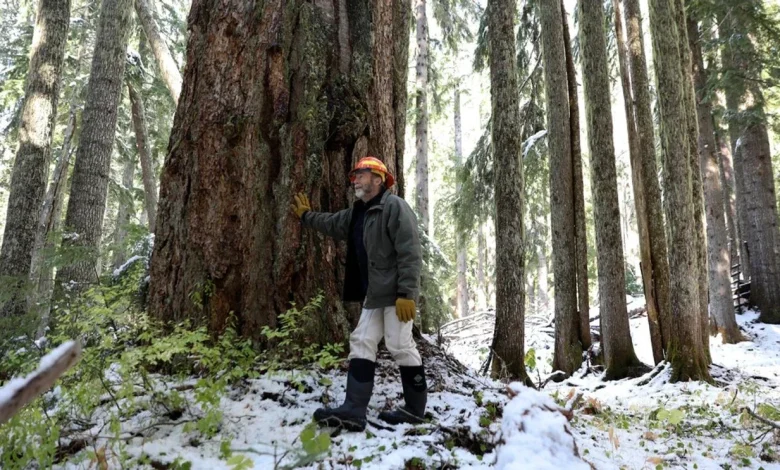Oregon Christmas tree farms face supply challenges amid rising costs

PORTLAND, Ore. (KATU) — Christmas tree farms in Oregon are grappling with supply challenges this year, as past droughts and heat waves have led to significant die-offs of seedlings and small noble firs.
Terry Bradshaw of JTB U-Cut Christmas Trees said, “We try and have 1,000 trees ready to go every year, but with past droughts and heat waves, we’ve had tremendous die-off of the seedlings and small nobles, and it’s starting to catch up to us now.”
Despite these challenges, Bradshaw assured that the farm will open the day after Thanksgiving, although the duration of the season remains uncertain due to the limited supply.
“Hopefully customers will understand and be a little more accepting of a little smaller tree than they normally get,” Bradshaw said.
SEE ALSO | It’s a free fishing, crabbing & clamming weekend for Oregon the weekend after Thanksgiving
While the overall Christmas tree industry in Oregon appears to have ample supplies for retailers, small U-cut farms like JTB are facing difficulties.
The noble fir, a popular choice among Christmas trees, takes about 10 to 12 years to grow and is the most expensive to grow, according to Bradshaw.
Despite rising labor and fuel costs, JTB U-Cut is maintaining last year’s pricing at $80 for any size tree.
“Our labor costs are going through the roof,” Bradshaw noted, emphasizing the farm’s commitment to organic practices by avoiding chemical weed control.
Oregon is a leading producer of Christmas trees in the United States, with more than 4 million trees, accounting for 30% of national production, originating from the state.
The Oregon Department of Agriculture reports that Christmas trees are cultivated on 1,000 farms in the western half of the state, where favorable climate, soil, and expertise contribute to the successful growth of this holiday staple.
Noble firs are particularly prized for their evenly spaced branches, excellent needle retention, and ability to stay fresh for extended periods.
Contrary to popular belief, Oregon Christmas trees are not individually harvested from forests but are sustainably grown in large fields, contributing to carbon sequestration over the years.
Looking ahead, Bradshaw expressed concerns about the farm’s future operations. “We do have higher labor cost, fuel costs, employee wages, but we are trying to absorb it,” he said. “Will have to reevaluate for next season, how we will operate.”





